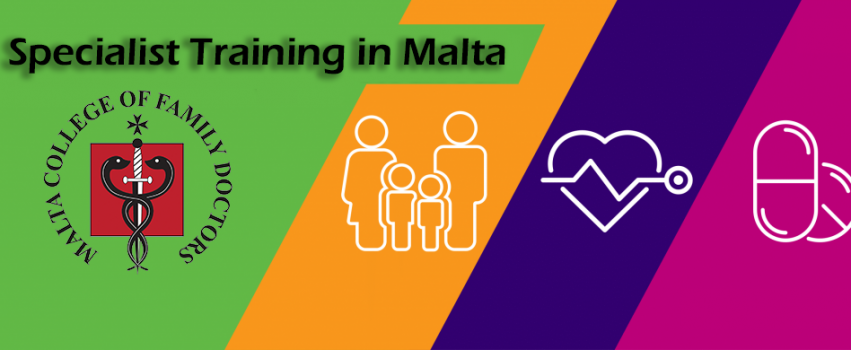Training in Family Medicine in Malta
Family Medicine has been recognised as a medical specialty in Malta since accession as member of the European Union in 2004. Doctors who wish to pursue family medicine, undergo the Specialist Training Programme in Family Medicine (STPFM).
The Programme is a three-year programme based in family practice and led by Trainers in Family Medicine and supplemented by attachments with appropriate hospital specialties.
GP Trainees undergo training by working under the supervision of a GP Trainer in primary health care, and under the supervision of a hospital supervisor in various departments within secondary health care. During this three-year programme the GP trainee spends one and a half years training in family medicine – experience in both the public and the private sector are included in the programme.
The other one and a half years offer exposure to the fields of General Medicine, Paediatrics, Obstetrics & Gynaecology, Accident & Emergency, Dermatology, ENT, Geriatrics, Palliative Care, Ophthalmology and Psychiatry. Exposure in the secondary health care specialties is specifically targeted so that the trainee is exposed to the family medicine aspect of that particular hospital specialty.
GP trainees have weekly tutorials with their GP trainer and also monthly tutorials with hospital supervisors during hospital rotations. Moreover, the trainees participate in weekly Half-Day Release Course (HDRC) consisting of afternoon teaching sessions taking place on a weekly basis. A minimum HDRC attendance of 85% is necessary in order to progress to the next year of training.
All the above educational experiences are collected in an electronic educational portfolio which, besides being a formative tool, will constitute the basis of the yearly appraisal. For the trainee to progress from one year to the next, one must pass this appraisal. The educational portfolio will demonstrate that the trainee has fulfilled the requirements of his attachments.
At the end of the three year programme, a summative assessment will take place. This involves three parts - clinical skills assessment, an applied knowledge test, and a workplace-based assessment. The educational portfolio will be used to assess the workplace based assessment.

